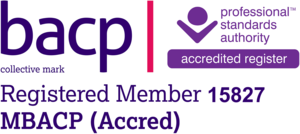Frequently Asked Questions
What is counselling?
Counselling is a kind of talking therapy which involves having a face to face conversation with a trained and experienced practitioner in a confidential, non-judgemental setting.
I can help you explore the difficulties you might be experiencing and to make sense of the reasons why you are struggling.
I can help you put your feelings into words and to make connections between different aspects of your life. The opportunity to think and talk about your difficulties in a reflective way can not only bring a sense of relief but also help you make meaningful changes to your life and relationships.
Some people think they have to experience a major traumatic event before seeing a counsellor. In fact, there are so many reasons why someone might decide to come to counselling. You may not even know what the matter is, but just feel unhappy or stressed. I can help you work out what might be troubling you, even if you're not sure yourself, and then help you think about ways forward.
How do I know if I need counselling?
The fact you're looking at this page might suggest that something is bothering you and that talking it over with a counsellor could be a good idea. Having an initial appointment with me can help you to decide what steps to take. You can come along for just one appointment, if you wish, without making a commitment to further counselling.
What kind of counselling do you offer?
I practise integrative counselling, which means I bring together different elements of various specific therapies. I take the view that there is no single approach that can treat each person in all situations.
My core professional training was in psychodynamic and humanistic counselling. I have since taken courses in Cognitive Behaviour Therapy (CBT) and Dynamic Interpersonal Therapy (DIT).
What problems can you help with?
I am experienced in working with a wide range of problems including:
- Depression
- Stress
- Relationships
- Panic attacks
- Anxiety
- Grief and loss
- Low self-esteem
- Eating problems
- Identity issues
- Work and study problems
- Student issues in general
- Traumatic experiences
How do I book an appointment?
If you have any questions or would like to arrange an appointment, please either email me at info@susierenshaw.co.uk or call me on 07479 185962.
What happens when I arrive at the clinic?
When you arrive, please find the doorbell and I will come and let you in. There is no waiting area. Your appointment will take place in a comfortable, private consulting room on the 2nd floor.
What happens at the first appointment?
Your first appointment is to find out if counselling is going to be helpful to you and for you to find out if you'd like to work with me.
I will listen to what has been troubling you and what made you decide to contact me. I will ask you some questions about yourself, your background and how your difficulties are affecting your life and general wellbeing.
If it is felt that counselling with me isn't going to be the best form of help, I will try to refer you to something more suitable.
How many appointments will I need?
After your first appointment, if you decide to progress, I would usually suggest meeting for 6 further appointments and we would review whether the difficulties that brought you to counselling are sufficiently resolved. It may be that you're happy to end there or it could be that further counselling would be helpful.
For some people, one or two appointments are all they want or need, equally some people prefer to work for much longer (over 6 months) if their issues are more deep-seated or complex.
How often would I need to come?
If we decide to work together we will agree a regular time to meet. Appointments usually take place at the same time each week and last 50 minutes.
How do I know you're the right counsellor for me?
When you talk to me, you should feel you could trust me and would be comfortable talking with me about very personal thoughts and feelings. If you don't feel this is the case, you may want to consider finding someone else.
If you have had several appointments and still feel uncomfortable with me, please try and talk to me about it as we may be able to work it through as part of the therapy. However, you may wish to consider seeking another therapist.
The British Association for Counselling and Psychotherapy (BACP) provides advice for people looking for a therapist - What is therapy and counselling?
What if I'm busy one week and can't come?
I appreciate that you may have to cancel occasional appointments. We may also be able to rearrange appointments for different times on occasion.
If you wish to cancel an appointment please give more than 48 hours' notice. Appointments cancelled with less than 48 hours' notice will be charged at the full amount.
How do I pay for appointments?
Appointments can be paid by bank transfer week by week or I can provide a monthly invoice.
How do I know if you are experienced enough to help with my kind of problem?
I have experience working with a very wide range of problems (see above). I also have considerable experience undertaking assessments and making referrals onto other services and practitioners. If I don't feel I have the skills to help you with your issue then I will help you find someone who can.
